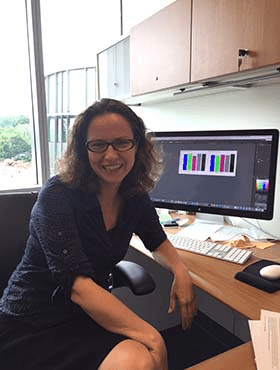Dr. Ucar earned her B.S. degree in Computer Engineering from Bilkent University followed by her Ph.D. in Computer Science from the Ohio State University. She conducted postdoctoral studies at University of Iowa and Stanford University, during which she developed computational methods to discover cell-specific epigenomic patterns from ChIP-seq datasets. In 2013, she launched her laboratory at The Jackson Laboratory for Genomic Medicine (JAX-GM). The overarching goal of her lab is to uncover how epigenomic landscape of human cells -especially immune cells- are remodeled and disrupted with aging and aging-related diseases. She also studies how genetic variants impact epigenomic landscapes of human cells in the context of complex diseases, e.g., Type 2 Diabetes (T2D). Towards this goal, she combines advanced computational techniques with state-of-the art NGS approaches (e.g., ATAC-seq, CITE-seq).
Next-generation sequencing technologies have revolutionized biological research and provided unique opportunities to study broad and novel questions about the regulation of gene expression. With these technologies, there has been an exponential increase in the types and amount of high-throughput datasets pertaining to the dynamics of gene expression. These data include gene expression data and genome-wide maps of nucleosome occupancy and open chromatin, epigenetic marks and transcription factor binding sites in cells and organisms under various experimental conditions. In my lab, we develop computational models to take advantage of genomics datasets to study the dynamics and mechanisms of transcriptional gene regulation and identify testable hypotheses for genomic medicine.
Visit the Ucar Personal Lab Site

